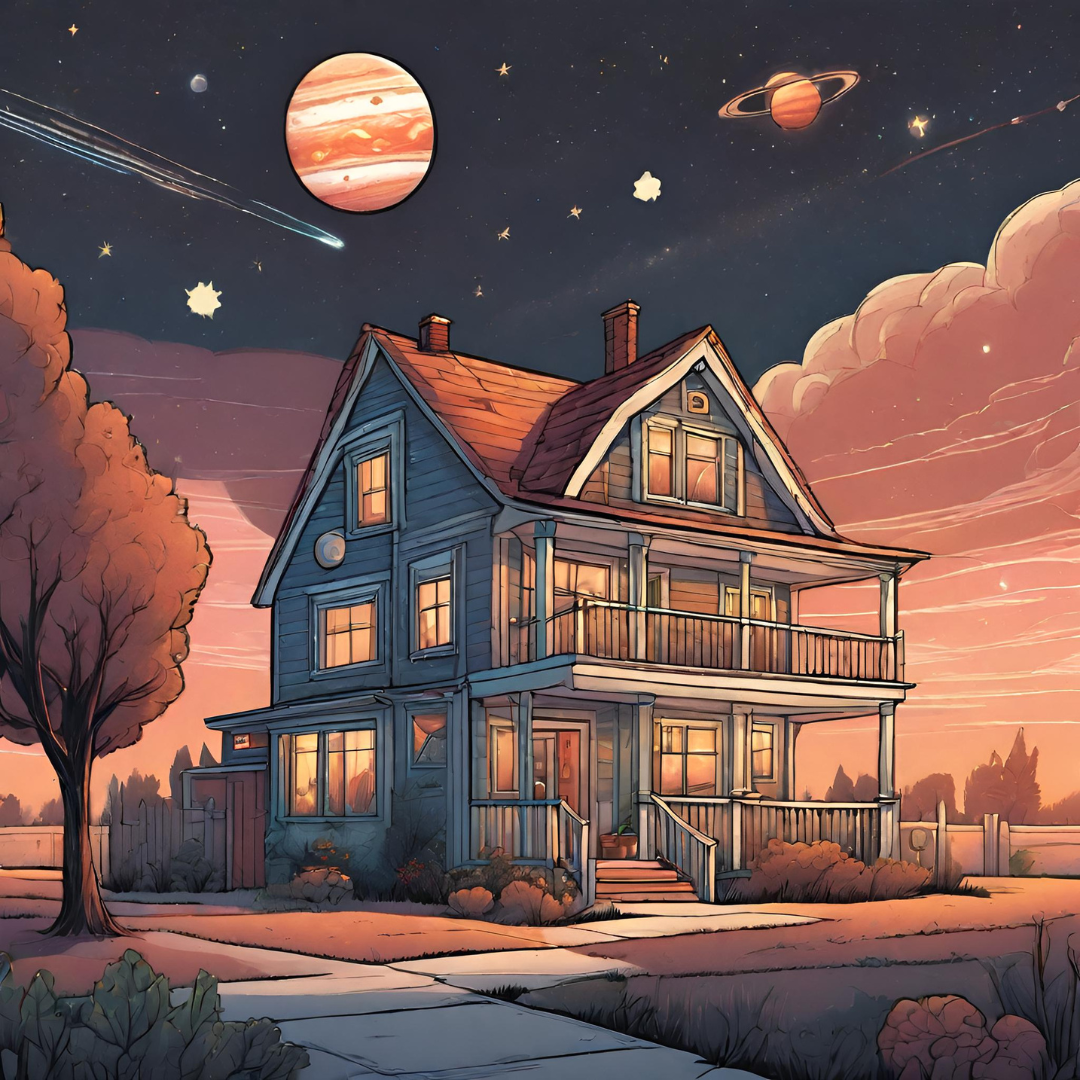Natural Rulers of the 8th and 12th Houses: Where are Mars and Jupiter?
It's interesting to me that when astrologers talk about natural rulers of the houses they almost always use modern planets. There is no modern ruler of the 4th, so the Moon rules the 4th, of course, but Pluto always rules the 8th, and Neptune always rules the 12th. There is rarely any mention of Mars or Jupiter as rulers of the 8th or 12th.
Why is that? The idea of natural rulers of the houses is a modern technique, of course, so we're not going to hear about it from traditional or Hellenistic astrologers, but there are a lot of modern astrologers who work with traditional rulers. Why don’t we hear more about them in discussions of natural rulers of the houses?
On the surface, this may seem like a technical debate for late nights at the bar at astrology conferences, but mapping traditional rulerships onto the houses has practical ramifications for how we interpret houses. The traditional planets add nuance, but they also bring the 8th and 12th houses down to earth, teaching us how to cope with some of life’s most difficult territory.
Mars as Natural Ruler of the 8th House
The 8th house is traditionally called the House of Death. Modern astrologers often call it the House of Sex, Death, and the Occult. Regardless of what side you’re on, the 8th house covers difficult territory. Even the sexy side of the 8th isn’t just “adult entertainment.” It is the raw, primal bonding of people who have become profoundly attached to each other, with the inevitable knowledge that they will someday be ripped apart.
Pluto is the modern planet most often assigned as the natural ruler of the 8th. Pluto makes sense as the natural ruler of this house because Pluto is the modern planet of death. Pluto was discovered in the 1930s, ushered into our awareness along with Stalinism and the Wehrmacht.
Pluto is the inevitable, all-powerful march of mass movements of death and destruction. The resistance of the individual is pointless, inevitably crushed by the Gulags, death camps, or the relentless tanks. What is the individual to do against world-shaking forces like these? Pluto says, "Only the foolish little ego would stand up to me."
For that reason, we often talk about surrender and the 8th, and there's a truth in that. Only the foolish would fight the inevitability of 8th house transits. Death is coming, and it’s better to surrender than to fight it, isn’t it? Perhaps, but that approach doesn’t work if we see Pluto and Mars as natural co-rulers of the 8th.
Mars isn't an easy planet, either. In traditional astrology it's one of the two malefics. As the planet of war, its territory overlaps with Pluto, but Mars war is a more ancient conception of war. It is the war in which two guys with a sword clash on the battlefield, not massive bombing runs and anonymous drones.
Mars is a personal planet, so Mars' battles are personal. Mars sees the individual watching the dictator on TV with horror. Mars asks the question, "You there, are you going to put up with this?" Mars looks into the face of the massive, impersonal horror of Pluto and demands personal courage.
Surrender is the death of Mars. If Mars rules the 8th, it means that we aren't supposed to just lay down and die when we face 8th house things. Mars tells us to fight for life, even knowing that death is inevitable, knowing that this might be the battle we're not going to win.
Jupiter as Natural Ruler of the 12th House
Even if Mars ultimately delivers bad news, there is a natural synergy between Mars and the themes of the 8th house. The 8th house is the inevitability of death, and every warrior knows that death is inevitable on the battlefield.
The relationship between the 12th house and Jupiter isn’t so immediately obvious.
The 12th house is traditionally called the House of Troubles. Modern astrologers call it the House of Self-undoing. As much as modern astrologers try to look on the bright side, the 12th house is still the most unlucky house, and yet Jupiter is the planet of luck!
If Jupiter is a natural ruler of the 12th house, does that mean the 12th house is secretly lucky? Sometimes, I think it does. There are times when unfortunate events look different in retrospect. We lose something that we thought we wanted only to realize that our loss has made space for something better or something we didn't know we needed.
At the same time, if Jupiter is the ruler of the 12th, it points to a side of Jupiter that we don't like to talk about. Jupiter is the planet of excess, and the 12th house is the place we go to recover when we have over-extended ourselves. It is the house of hospitals, prisons, and monasteries. These are places we go when we have over-extended ourselves with drugs or alcohol, when we have worked too hard and need rest, or when our selfishness has harmed others.
Neptune meets us in those times when we have overinflated ourselves and collapsed. Neptune is the planet of dissipation, handing us another glass of whiskey when we’ve already had one too many, but it is also the planet of universal love and compassion. It reminds us that we are not alone. Our successes and our failures aren’t really ours. It’s all just a natural outworking of the song of the universe playing itself out.
Like with Pluto, a person can get lost in the vastness of Neptune. Once again, a traditional planet casts the whole situation in a more personal light, reminding us of the power of faith to pull us out of the impossibly deep hole we’ve dug ourselves into.
What about Uranus and the 11th house?
Traditional astrologers are highly vocal about the fact that natural rulerships of the houses don’t make sense. Hellenistic astrology has its own system for assigning relationships between the planets and houses called planetary joys. Natural rulerships are a scheme that was invented by astrologers in the 20th century without the grounding of the traditional rulership scheme that we inherited from the ancients.
I hope that I’ve already made the case that there is something to be gained from meditating on the planets and houses together using the natural rulership scheme, but I do agree with the traditional astrologers that the system of natural rulers isn’t a complete and elegant system the way planetary joys and traditional rulerships are.
In my opinion, the place where the systems of modern sign rulers and natural house rulers breaks down is with Uranus, Aquarius, and the 11th house. In modern astrology, these symbols are often boiled down to “groups.” Uranus adds a small bit of nuance. As the planet of rebellion, it expands the influence of the crowd beyond the personal, turning it into social consciousness and revolutionary movements.
Much is lost, however, when these symbols are simplified this way. Mars and Jupiter bring out shades of nuance when they are associated with the 8th and 12th houses, helping us to understand how to respond to events that are beyond us.
Saturn, on the other hand, is helpless to pull us out of the oversimplification of the Uranus-Aquarius-11th house narrative. Saturn is the planet of authority. When it is pulled into a conversation with Uranus about the 11th house, the conversation becomes a battle of the wills, devolving into an us-vs-them discourse. “Who will be the ruler of the empire?” they ask, “the rebels or the establishment?”
Ultimately, however, this is the role of Uranus. Uranus was discovered during the revolutionary period of the late-18th century. Uranus is the death of kings, dealing the final, crushing blow to feudalism. Of course, it would come along and break astrologers’ systems of rulership.
Related Articles



